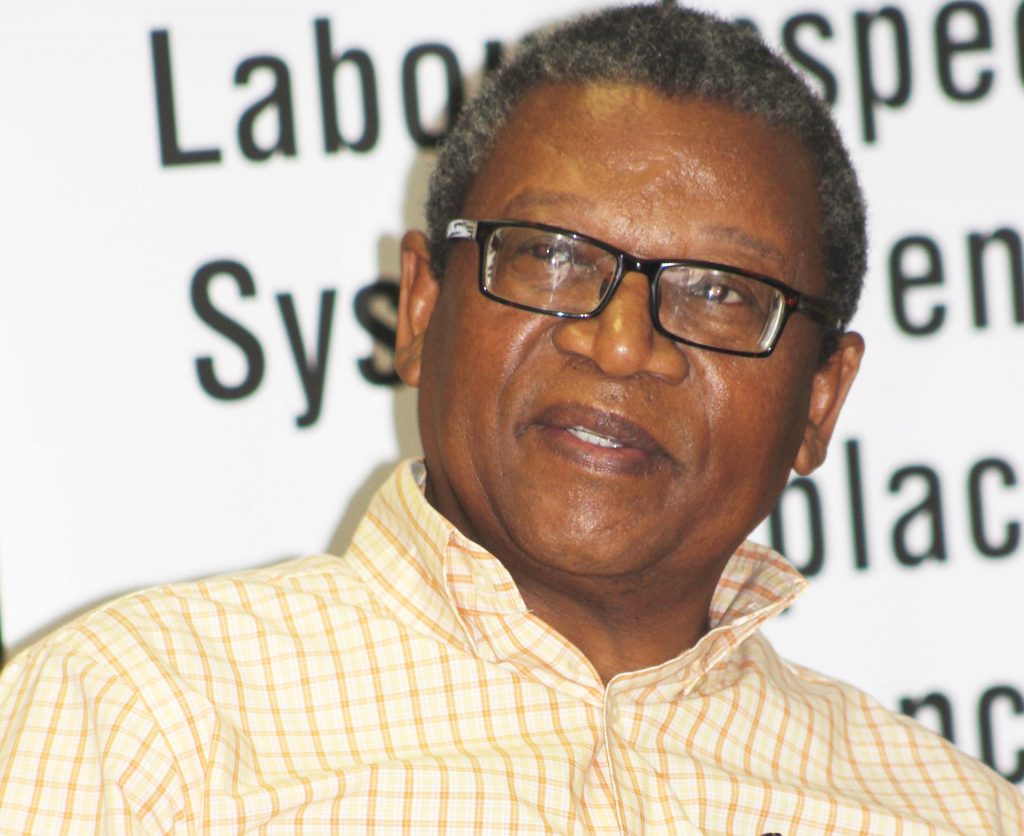Bereng Mpaki
MINISTRY of Labour and Employment Deputy Principal Secretary Pitso Makosholo says coordination among stakeholders is crucial to improving labour inspection standards in the country.
Mr Makosholo said this while opening the labour inspection workshop in Maseru this week. The workshop brought together stakeholders for deliberations on possible collaborations to increase efficiency labour issues.
The three-day workshop was organised by the ministry under its Strengthening Labour Inspections Project, which is funded by the United States Department of Labour (USDOL) and supported by International Labour Organisation (ILO).
Lesotho ratified ILO Convention No.81 in 2001 on Labour Inspection in Industry and Commerce, and therefore the country has an obligation to provide and maintain a system of labour inspection to ensure the protection of workers in industrial and commercial workplaces.
“The Ministry of Labour is mandated with the control and application of the labour law, but in reality, labour inspection services are often split between different ministries and without a strong coordination, the effectiveness would be undermined” Mr Makosholo said.
“The importance of cooperation among the different inspection services cannot be overemphasised. These include social insurance institutions, the police, the judiciary, tax authorities, national human rights organisms, immigration authorities, social research institutions, NGOs, technical, medical, educational and training institutions and the media.”
He said the workshop came at an opportune time when the ministry was on the verge of completing the Lesotho Labour Policy which is a step towards ensuring that the national law reforms are operationalised.
Meanwhile, the Association of Lesotho Employers and Business (ALEB), expressed concern over some inspectors’ inability to carry out their duties as they seemed to lack the requisite skills.
“Often times we are forced to question the ability of some inspectors to conduct their duties because they are not convincing. It is as if they are not properly trained on the laws that govern their job and seem bent on intimidating employers rather than assisting them to get it right where they fall short,” said Advocate Hlalele Tsolo in an interview with the Lesotho Times on the sidelines of the workshop.
He also said that inspection should be a collective exercise involving employers, employees and the government.
“We should make sure that when inspection is made, the employees and employers are part of it so that the findings reflect the true state of affairs, because the ultimate goal is to have working conditions that are suitable to both employees and employers.” He said.
Daniel Maraisane, a representative of employee federations welcomed the initiative saying strengthening labour inspection would address many issues that employees face.
“We are happy that this workshop is finally taking place to address the important issue of labour inspection, which at the moment is very fragmented and therefore not effective.
“It will be helpful to us by improving the efficiency in inspections so that the available number of inspectors can expand their reach,” Mr Maraisane said.
He said inspections were necessary to ensure safety of employees among other issues.
